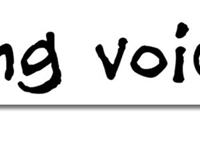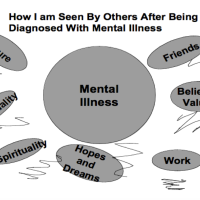Many people I meet ask me for a list of books I recommend – anyone who knows me knows that the only thing I recommend is to not recommend anything…
Some persist and say “ok can you suggest one book I can start with? ”
If  there is one book I’d suggest starting with then this is it – reading Norman Doidge’s book changed my life.
there is one book I’d suggest starting with then this is it – reading Norman Doidge’s book changed my life.
I read it not long after by own brain had been at it’s most fried – when I refered to it as “this lump in my head” – and I could only read two pages at a time.
From reading Doidge’s book I realised that whatever was going on in my head could be reversed, that I could reverse it : I just had to learn how.
Norman Doidge is a psychiatrist and researcher, the book is not about his own research so much as it’s about story of the research of others – a handful of pioneers at the forefront of neuroplasticity.
Doidge is a great storyteller, the book unfolds through a series of stories about the science and the people, that yield a new realisation: that what we’ve taught ourselves about the brain the last few hundred years – that it’s fixed early – is entirely wrong.
Thanks to these pioneers – and to Doidge bringing their stories together and making them so accessible – we now understand that the brain does not merely adapt to some circumstances but that it is constantly changing, adapting and rewiring itself: that’s what the brain does.
We now understand that everything that happens to us, that we do, and that we experience – even everything we think- changes our brain. The human brain has evolved supremely to adapt to it’s environment- that’s it’s job.
This understanding even raises the question – is it our brain or are we it’s body?
human stories from the frontiers of brain science
Doidge tells a handful of stories of how a small band of scientists have been working to gain glimpses into this phenomena and to figure out ways to use it to help people heal.
The stories are extrodinary – but only if we expect the brain not to do this. We now know that it is actually what the bain does, with or without us. The trick we need to learn is how to help it along.
And the techniques involve no medications, no surgery. Mostly they are ways of paying focussed attention long enough and often enough to allow the brain to encourage new connections strong enough that it cab go it alone and do its thing inside our head. Sometimes there’s electromagnetic brain stimulation; sometimes sensors on the tongue that allow the brain to see; some times high tech devices: like the cardboard box and a mirror that cost three dollars.[this one even made it into a side story in an episode of House].
There’s a strong Toronto connection too – one of the stories is about a school for kids with learning difficulties in Toronto -Norman Doidge is Canadian and lives and works in Toronto.
Two documentaries, the first in four parts…
If you’ve been meaning to read this book but are afraid that it’s all heavy science-y stuff don’t be – it’s an easy read Doidge is a great communicator .
If you’ve been meaning to read it but haven’t found time then here it is in less than two hours: watching theses docs will likely make you want to read the book all the more.
and it’s book of the month at nonfictionbookclub.ca so you can come to Alternative Grounds [find it here] to talk with others about the book http://nonfictionbookclub.ca/
Two movies – here the first is in four parts
One. The Brain That Changes Itself
in four parts, uploaded by CBC
Pt 1
Pt 2
Pt 3
Pt 4
Two – Changing Your Brain
more stories, beginning with Jeffrey M Schwarz and his work with people helping them conquer obsessive compulsive disorder
Related articles
- The Brain That Changes Itself (recoverynetworktoronto.wordpress.com)
- Brain Lock – Jeffrey M. Schwartz (recoverynetworktoronto.wordpress.com)

































































































Hi Kevin, I like this new search tool. I was able to find Jeffrey Schwartz work on OCD with out any problem. I really like his self directed neuroplasticity approach and wonder if it has other applications than OCD? Maybe any type of thinking that has a obsessive compulsive feature to it . I’m pondering on this one right now while I try to get his four steps learned. Thanks.
LikeLike
Hi Laura. glad you like the new search . Jeffrey Schwarz has now generalised his approach for briad eange of application – his latest book describes it : “You Are Not Your Brain” kevin
LikeLike
Thanks Kevin for the book club information. These movies/docs are very informative . I was especially fancinated by the stuff about OCD and Schizophrenia. I shared the docs with a friend whose son has schizophrenia this weekend and she was very encouraged and is now a new user of your site.
LikeLike
Hi Laura. If you like Jeffrey Schwarz’s stuff on OCD try our [new] search tool and search for for Brain Lock -the title of his book in which he tells the full story. There’s also a description of his four step self directed neuroplasticity approach . And thanks for sharing, glad your friend like it too.!
LikeLike